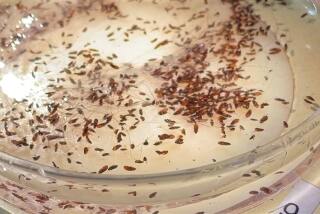Back from the brink
For four days at the end of last month, I was unconscious. After a week fighting an illness I thought was the flu, I’d ended up in an intensive care unit on a feeding tube and a ventilator with swelling of the brain, multiple organ distress and a platelet disorder called disseminated intravascular coagulation. (Read the first part of Meghan Daum’s medical odyssey.)
When I regained consciousness (and apparently there had been speculation that this might never happen), it took several more days to figure out what was wrong with me. The diagnosis that finally emerged was murine typhus, or Rickettsia typhi, from the bacteria that lives in rats and opossums and is transmitted to humans by bites or contact with feces from infected fleas (a lovely thought, I know).
Since I told part of the story in this space last week, many people have asked why the diagnosis took so long. The answer is that I didn’t have much of the telltale body rash that goes with this type of typhus; moreover, blood and spinal fluid tests suggested that what I had was viral, not bacterial.
Even more people have asked if they should be afraid of encountering the bacteria in their own backyards. The answer is no. There were 18 cases of murine typhus reported in Los Angeles County in 2008, the most recent year for which data are available. Many more cases probably went unreported because the subjects were barely affected. The chances of getting the disease in any form are very small. The chances of getting as sick as I did are infinitesimal.
Besides, I hardly ever went into the backyard of the north-central Pasadena house my husband and I have been renting. That’s probably why I didn’t care much that there were piles of leaves left over from last year and that two palm trees on the property were harboring flea-infested rodents. Nor did I fret much in late September when I noticed that my ankles were covered with fleabites, most likely transmitted by our dog, who did sometimes go into the backyard and who sometimes also slept at the foot of the bed. After all, why be scared of a flea?
But a month later, in the hospital, after the results of my lumbar puncture came up positive for typhus, it was apparent we should have been a bit more discriminating about our landscaping. Either that or we shouldn’t have let the dog on the bed. Of course, I could have gone to the doctor sooner, but ironically my general good health may have worked against me. I kept thinking recovery was around the corner. Instead, the disease was gaining momentum on its way to a full-blown attack.
Amid all the conjecture about what had happened to me, one thing was certain: I’d gotten better, and that made me exceedingly lucky. I was lucky not only to be alive but to have somehow avoided brain damage, deafness, blindness, loss of limb and paralysis. I was lucky, perhaps above all, to have countless friends and family members pulling for me.
While I “slept” under a cloud of propofol and a host of other medications, a few family members and close friends kept vigil in the ICU lounge. A chain of e-mails I wouldn’t see until later revealed page after page of shock, concern and genuine offers to help and promises to pray (even among non-praying types). Today, people are still telling me that my illness was a life-changing experience for them. My husband has the depleted, shellshocked air of a trauma survivor.
As for my condition, I believe the medical term is “totally weirded out.” How else to describe the experience of thinking you have the flu and then waking up to the news that four days have passed and you’d had a near-death experience (sans white light, by the way) that put everyone who cared about you through hell? Though I survived a physical ordeal, I was disconnected from the emotional ordeal that hung over those hospital lounge vigils and e-mail chains. Though I’ll be dealing with the aftereffects for a long time — such as permanent hearing loss over 6,000 Hz, which means that music sounds distorted — I am not privy to the relief (euphoria in some cases) of those around me.
And that leaves me with an ailment that, for now at least, is as mysterious as was my illness in the days before it was diagnosed. I won’t presume to coin a term for it, but I can say that it occupies a psychological space somewhere between disbelief and despondency. As much as I hate that this happened, the extent to which I’ll probably never understand exactly what it was like (despite the recountings and my own, terrifying postgame Google searches) keeps me more perplexed than horrified.
Still, when a county Health Department nurse visited a few weeks ago and said that other typhus cases in recent years were caught early and treated without complications, I couldn’t help but feel haunted by, and even a little bit angry at, the randomness of the world. For all of our controlling impulses, one flea can upend life as we know it. Stranger yet, there is no rational way of handling that information other than simply not thinking about it. That’s a goal in my recovery I can’t wait to achieve.







